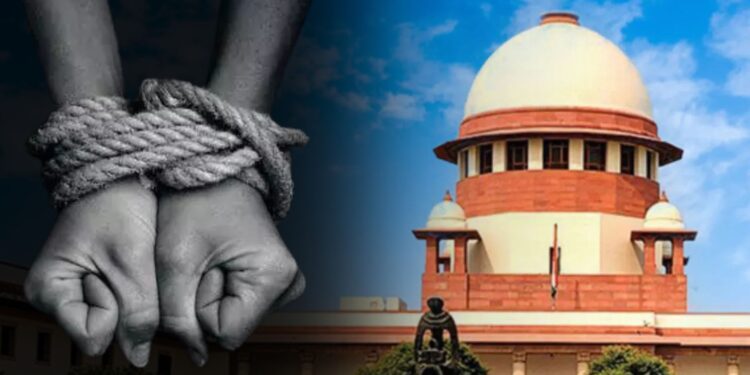The Supreme Court on Tuesday stressed the urgent need for a comprehensive rehabilitation framework for victims of sex trafficking, pointing out the lack of legislative provisions addressing this critical issue [Prajwala v. Union of India and Others].
A Bench comprising Justices JB Pardiwala and Pankaj Mithal highlighted the grave impact of human and sex trafficking on vulnerable sections of society, especially women and children. Calling the issue “highly sensitive,” the Court underscored the necessity of protection, support, and rehabilitation for those affected.
“These crimes dehumanize victims and violate their fundamental rights to life, freedom, and personal security. Women and children, as the most vulnerable, bear the brunt of such atrocities. There is an urgent need for mechanisms that safeguard their dignity and ensure their well-being,” the Court observed.
Context of the Case
The Court was hearing an application regarding the compliance of its 2015 decision, which urged the Centre to establish an Organised Crime Investigating Agency (OCIA) and strengthen victim protection protocols for sex trafficking survivors. At the time, the Union had assured the Court of its intention to introduce a framework addressing these issues.
However, instead of forming the OCIA, amendments were made to the National Investigation Agency (NIA) Act, 2008. These changes aimed to empower the NIA to handle sex trafficking cases. The Bench expressed concerns that these amendments focus primarily on prosecution and fail to address the rehabilitation and protection of victims adequately.
“Prosecuting offenders is crucial, but equally vital is creating robust mechanisms to care for, protect, and rehabilitate the victims. Legislative measures must foster a legal, social, and economic environment conducive to their recovery and reintegration into society,” the Court emphasized.
Need for a Human Rights Approach
The Bench reiterated the importance of adopting a human rights-centric, rehabilitative approach to tackling trafficking. It urged the Centre to prioritize care and protection for survivors by enacting comprehensive legislation.
The Court was also informed that a draft law addressing these concerns had been introduced in Parliament but failed to move forward. The absence of such legislation, coupled with a rise in cyber-enabled sex trafficking, was a key concern for the Bench.
Directions and Next Steps
Taking note of the Centre’s inaction, the Court directed Additional Solicitor General Aishwarya Bhati to file a fresh affidavit detailing the steps the Union intends to take to address the legislative gap. The Bench emphasized the immediate need for actionable measures to combat trafficking and rehabilitate victims effectively.
The matter has been adjourned to December 10, with the expectation of significant progress.
Representation
Senior Advocate Aparna Bhat appeared for the petitioner non-profit organization, Prajwala, supported by Advocates Rajkumari Banju and Karishma Maria.
Court’s Final Remarks
The Supreme Court concluded by reiterating the critical importance of comprehensive legislative mechanisms that not only prosecute offenders but also establish a secure and supportive framework for victims. The Court’s intervention underscores the urgency of addressing the systemic challenges posed by sex trafficking and ensuring justice and dignity for survivors.

















